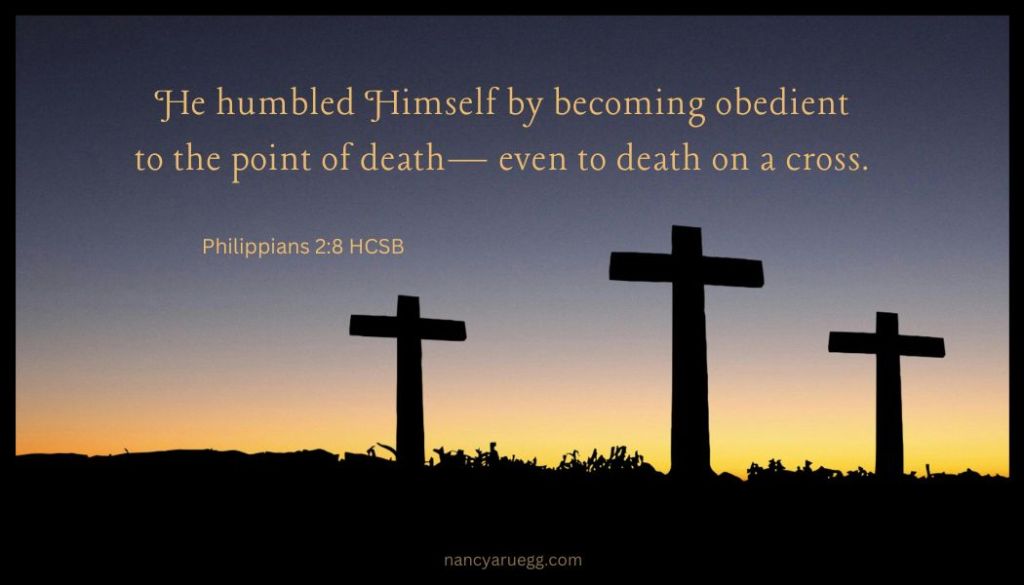After the cold starkness of winter, spring gleefully reawakens our senses with her:
- Effusion of colorful flowers
- Scents of hyacinth, lilacs, and freshly-mowed grass
- Symphony of bird song
- Flavors of tender asparagus, luscious strawberries, and tart rhubarb
- Textures of furry pussy willows, fuzzy moss, and silken magnolia petals
Praise God for our abilities to see, smell, hear, taste, and touch, allowing us to enjoy Spring in so many ways!
Even better, those abilities allow us to meet God in at least five ways.
Our five senses help us understand God more clearly.
Consider how the far-flung stars and planets speak of his power; the clever camouflage of lizard, fawn, and frog display his wisdom; the endless variety of colors, shapes, and textures prove his creativity; the instinctive parenting skills of adult animals demonstrate his goodness.
The wonder of creation is
every encounter illuminates
something about God.
–Margaret Feinberg, Wonderstruck, 55
Our five senses help us experience God’s glory more profoundly.
- We can see his power at work in the transformation of lives [1].
- We can hear his wisdom in godly men and women, such as Thomas á Kempis or Corrie ten Boom (just two among millions!):
- We can feel God’s loving touch through a hug that conveys compassion, a worship song that quickens the heart, or a landscape vista that gives us glory-goosebumps.
- We can taste his goodness in all the variety of blessings we enjoy (Psalm 34:8).
- We can smell the fragrance of his sweet presence (Psalm 45:6-8)—if we pay attention.
Our five senses help us connect with God more intimately in solitude.
Many people call it Quiet Time—moments they spend with God in scripture reading/study, prayer, perhaps journaling, and/or listening to peaceful worship music.
It’s in the quiet we begin to see important realities of the spiritual realm, hear God’s voice within our spirits providing wisdom and encouragement, feel his presence more palpably as we touch our knees to the floor in prayer, and again, smell the fragrance of his sweet presence as he meets us in our place of solitude.
Our five senses help us worship God more intently in community.
The whole person, with all his senses,
with both mind and body,
needs to be involved in genuine worship.
Jerry Kerns [2]
Kerns would have us fully engaged–first to bless God’s heart and then to elevate the experience for us also.
How?
- See the majesty and splendor of God on his throne–in your imagination. This is who you are worshiping [3]!
- Hear the music and join in with grateful, enthusiastic praise [4].
- Feel the presence of God as you pray. Try placing your hands on your lap, palms up—open and empty, symbolic of humility and receptivity [5].
- Taste the bread and wine/juice with prayerful gratitude. Jesus is our Bread of Life who satisfies our spiritual hunger, who shed his blood for us so we might one day enjoy heaven with him. May we never become desensitized to the magnitude of his sacrifice.
- Smell the fragrance of God’s saints as they leave the perfume of kindness, uplift, and joy in their wake.
Our five senses help us live out our faith more joyfully.
When our heart’s desire is to serve God by serving others, we’ll aspire to live so people:
- See the Light of Jesus in our choices, behavior, and attitudes (Matthew 5:14-15)
- Hear us speak truth, wisdom, and encouragement (Proverbs 10:20-21)
- Feel the love of God in our interactions with them (John 13:35)
- Taste the flavorful salt of God’s divine grace within us (Matthew 5:13)
- Smell the fragrance of Christ in our lives (2 Corinthians 2:15-16)
And as we engage all five senses in these five ways, what will happen?
We’ll bring more glory to God and enjoy more fully the satisfying, abundant life his Son provides.
That sounds mighty good to me. You too?
[1] Stunning examples include Jake DeShazer (https://nancyaruegg.com/2016/08/18/a-miracle-of-forgiveness/), Johnny Hart (https://nancyaruegg.com/2018/08/09/johnny-and-jesus/), and Isobel Kuhn (https://nancyaruegg.com/2024/04/11/goodness-and-mercy-followed/).
[2] https://www.experiencingworship.com/articles/general/2001-7-great-quotes-on-worship.html
[3] See: https://nancyaruegg.com/2023/07/06/in-awe-of-gods-magnificence/
[4] See: https://nancyaruegg.com/2015/09/07/when-worship-loses-the-wonder/
[5] See: https://nancyaruegg.com/2015/03/23/the-ultimate-delight/
Art & photo credits: http://www.pixabay.com; http://www.pexels.com; http://www.goodfon.com; http://www.stockvault.net; http://www.canva.com; http://www.pickpik.com (2); http://www.heartlight.org.














































